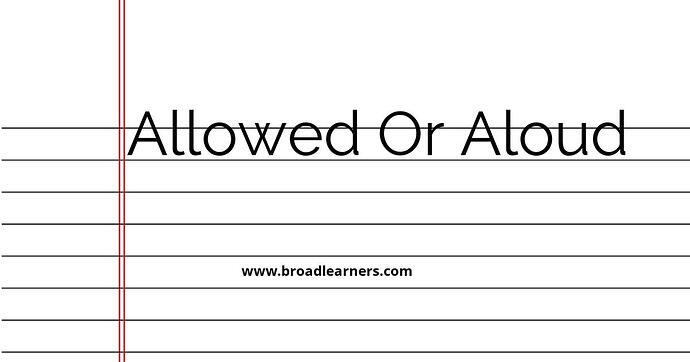'Allowed' and 'aloud' are commonly confused words in English grammar. Understanding the difference between 'allowed' and 'aloud' is important to use them correctly in written and spoken English.
'Allowed' is the past tense and past participle of the verb 'allow'. It means to give permission or to permit something or someone to do something.
'Aloud' is an adverb that means to speak or read something audibly or in a loud voice.
Let's take a closer look at the meanings and usage of 'allowed' and 'aloud'.
| 'Allowed' | 'Aloud' |
|---|---|
| The word 'allowed' is the past tense and past participle of the verb 'allow'. It is used to indicate giving permission or permitting something. | The word 'aloud' is an adverb that means to speak or read something audibly or in a loud voice. |
|
|
To remember the difference between 'allowed' and 'aloud', it can be helpful to remember that 'allowed' is related to permission, while 'aloud' is related to speaking audibly or in a loud voice.
Here are some examples of correct usage:
- I am not allowed to use my phone during class. (indicating permission)
- She read the story aloud to her children. (speaking audibly)
- The concert was so loud that we could hear it aloud from our house. (in a loud voice)
Remembering the correct usage of 'allowed' and 'aloud' will improve your grammar and communication skills.
